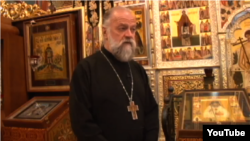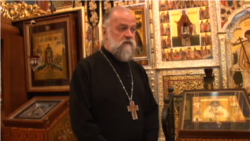The ability of an individual to practice his or her religion as he or she sees fit is a basic human right, and a central tenet of most of the world’s democratically-elected governments. Yet some governments in Europe and Eurasia place legal restrictions on how people worship.
In a number of participating States of the Organization for Security and Cooperation in Europe, or OSCE, serious legal obstacles have emerged to hinder peaceful religions practice. At the annual OSCE human rights meeting in Warsaw, known as the HDIM, Kari Johnstone, Director of the U.S. State Department’s Office of International Religious Freedom, highlighted several egregious cases.
In Uzbekistan and Turkmenistan people are imprisoned for their religious beliefs, while authorities conduct raids on religious organizations, arrest religious leaders, and restrict religious literature. Much of this is done under the guise of fighting terrorism.
In Tajikistan, children under the age of 18 may not participate in public religious activities, while women are effectively barred from praying in mosques.
In Russia, laws against religion and extremism target specific groups, and have been used to harass and imprison Jehovah’s Witnesses, evangelical Christians and Muslim followers of Nursi.
Since Russia occupied Crimea, the Muslim Tatar community there has seen its mosques and madrassas raided and attacked on the basis of laws against “extremism”. In addition, “Members of the Ukrainian Orthodox Church of the Kyivan Patriarchate, Ukrainian Greek Catholics, Jews, and other religious minorities in Crimea” have also been under pressure, said Johnstone.
Nearly 20 percent of the population of Turkey claims to be Alevi Muslims, but the government refuses to officially recognize their houses of worship. At the same time, adherents of the Greek Orthodox Ecumenical Patriarchate in Turkey face restrictions on their freedom to worship.
Elsewhere, a number of OSCE participating States have begun passing restrictions or bans on the use of religious attire, including head coverings, thus restricting freedom of religion and stigmatizing the women who wear them as dictated by their religion.
And throughout Europe, incidences of anti-Semitic violence are increasing.
“We urge law enforcement in all participating States to respond promptly to hate crimes targeting religious and other communities,” said Johnstone. “As signatories of the Helsinki Final Act, we have a special obligation to uphold this freedom.”

















